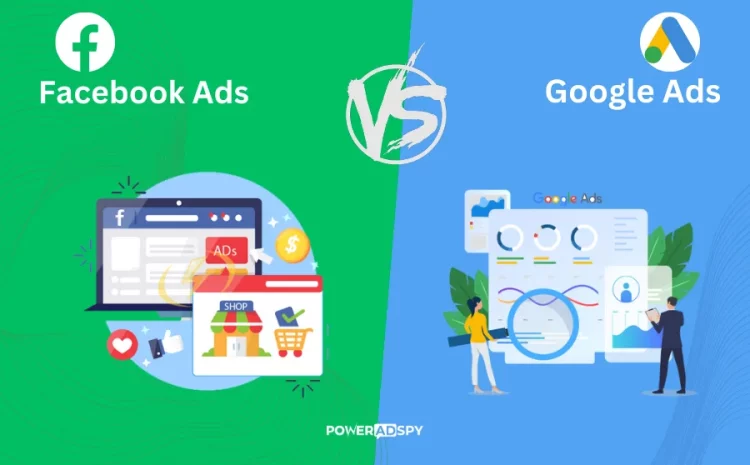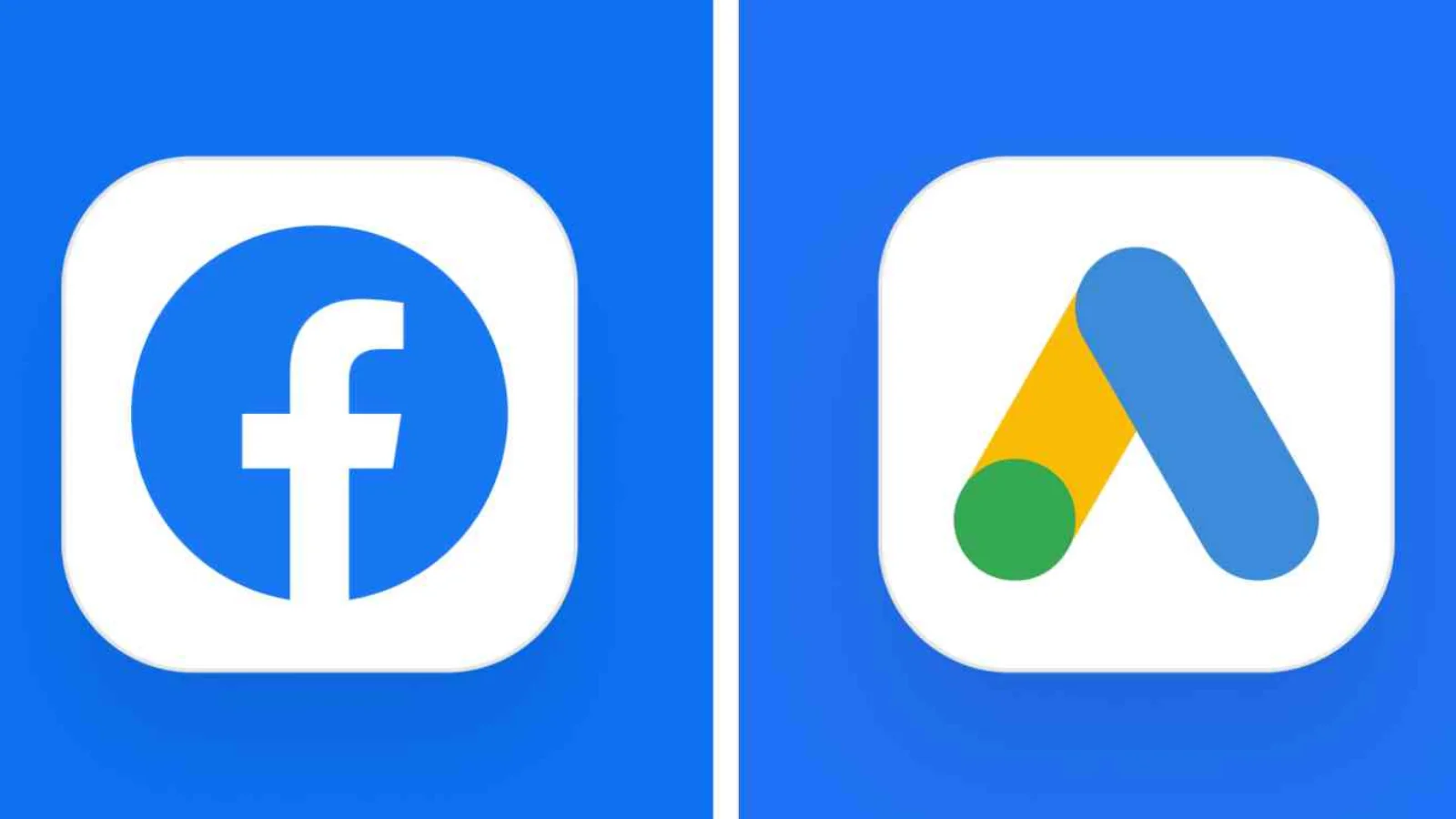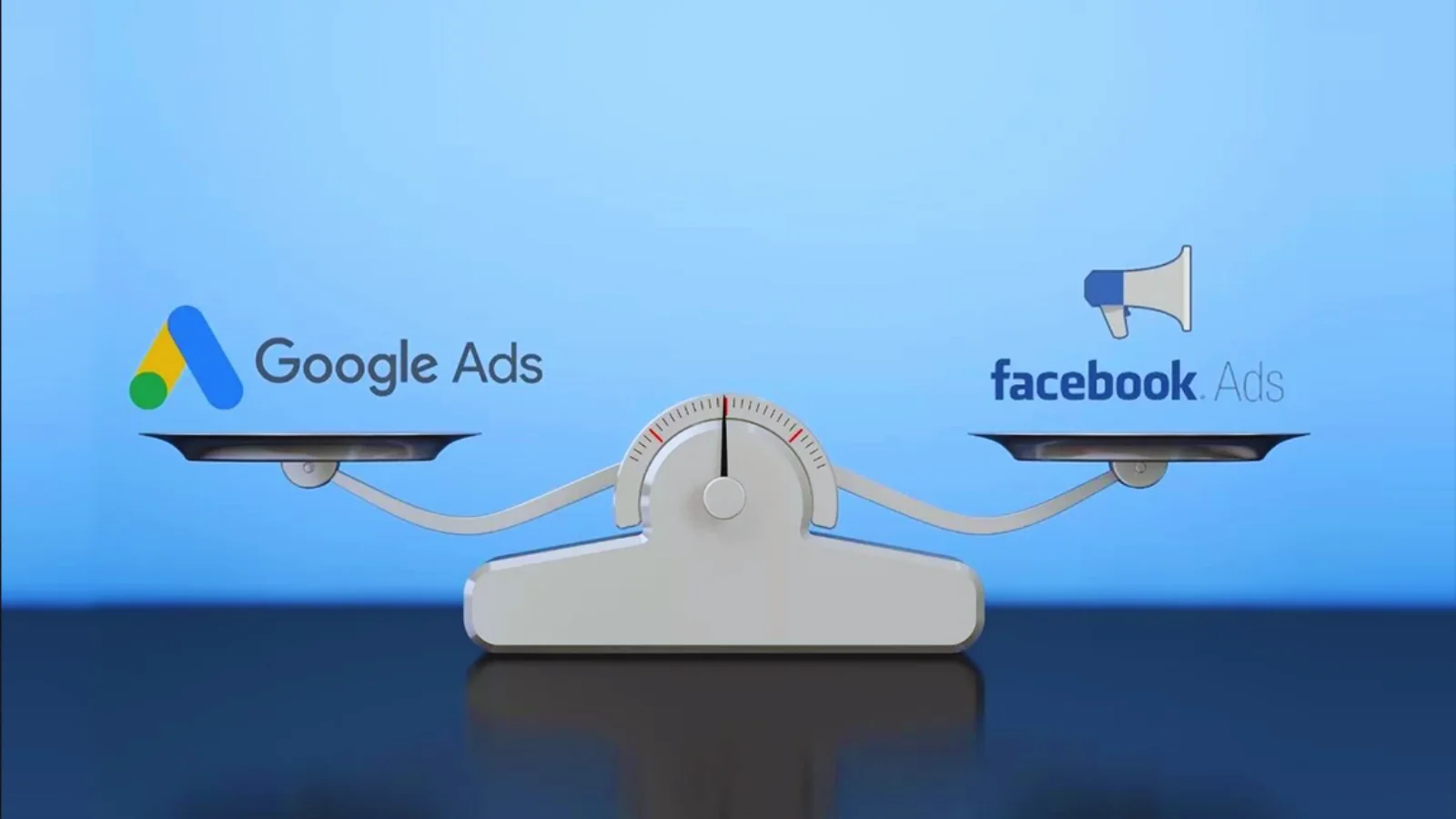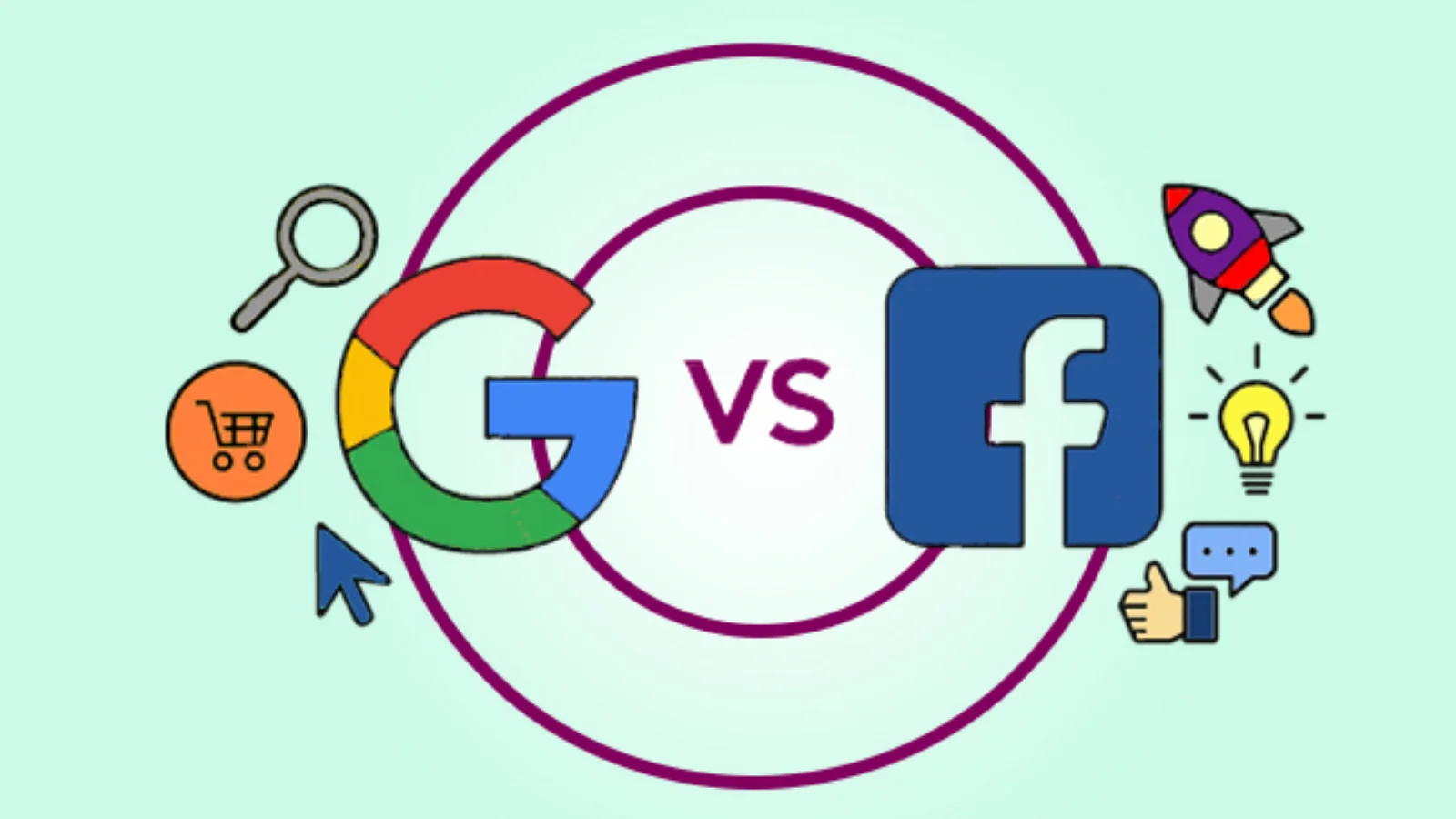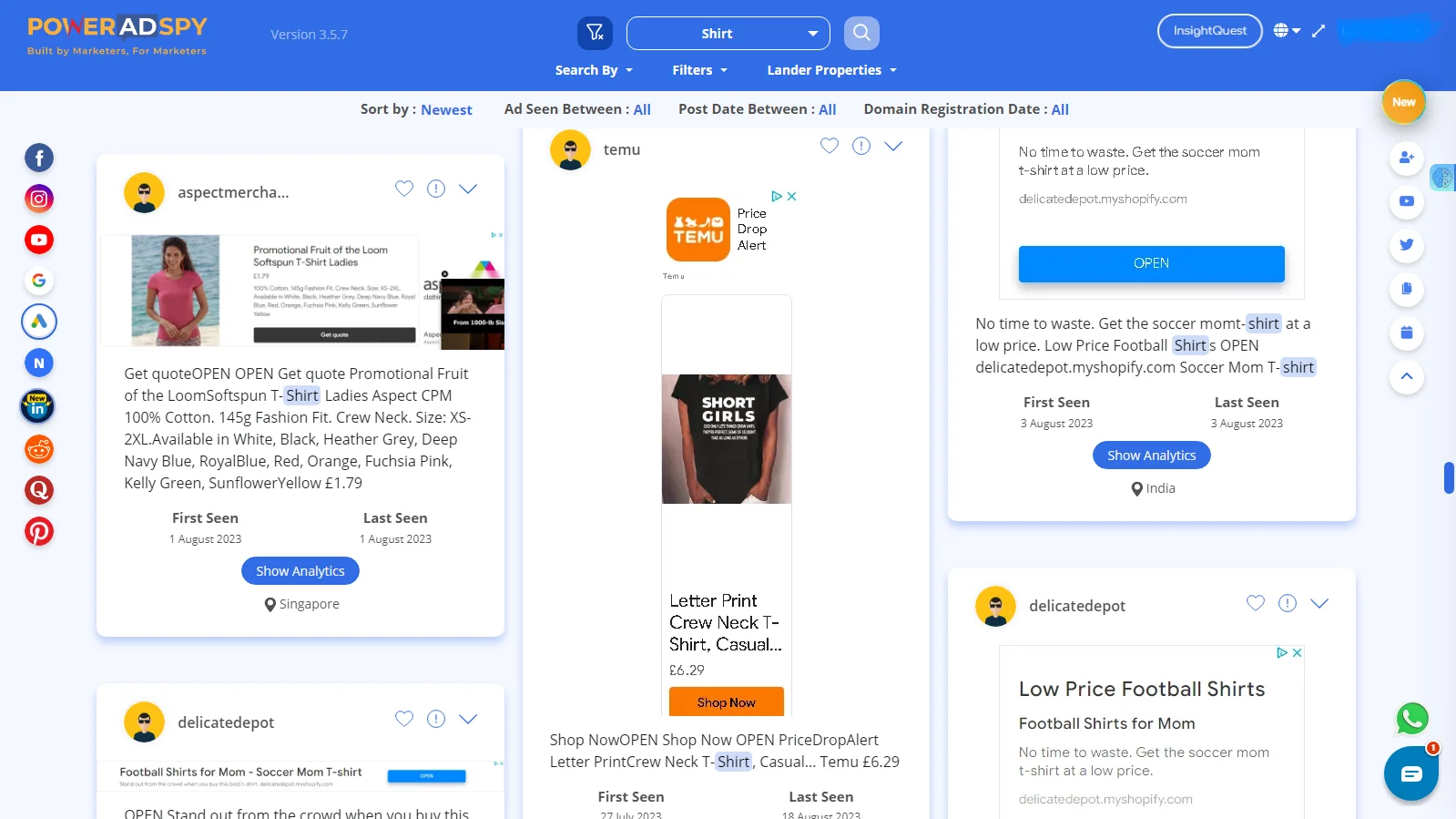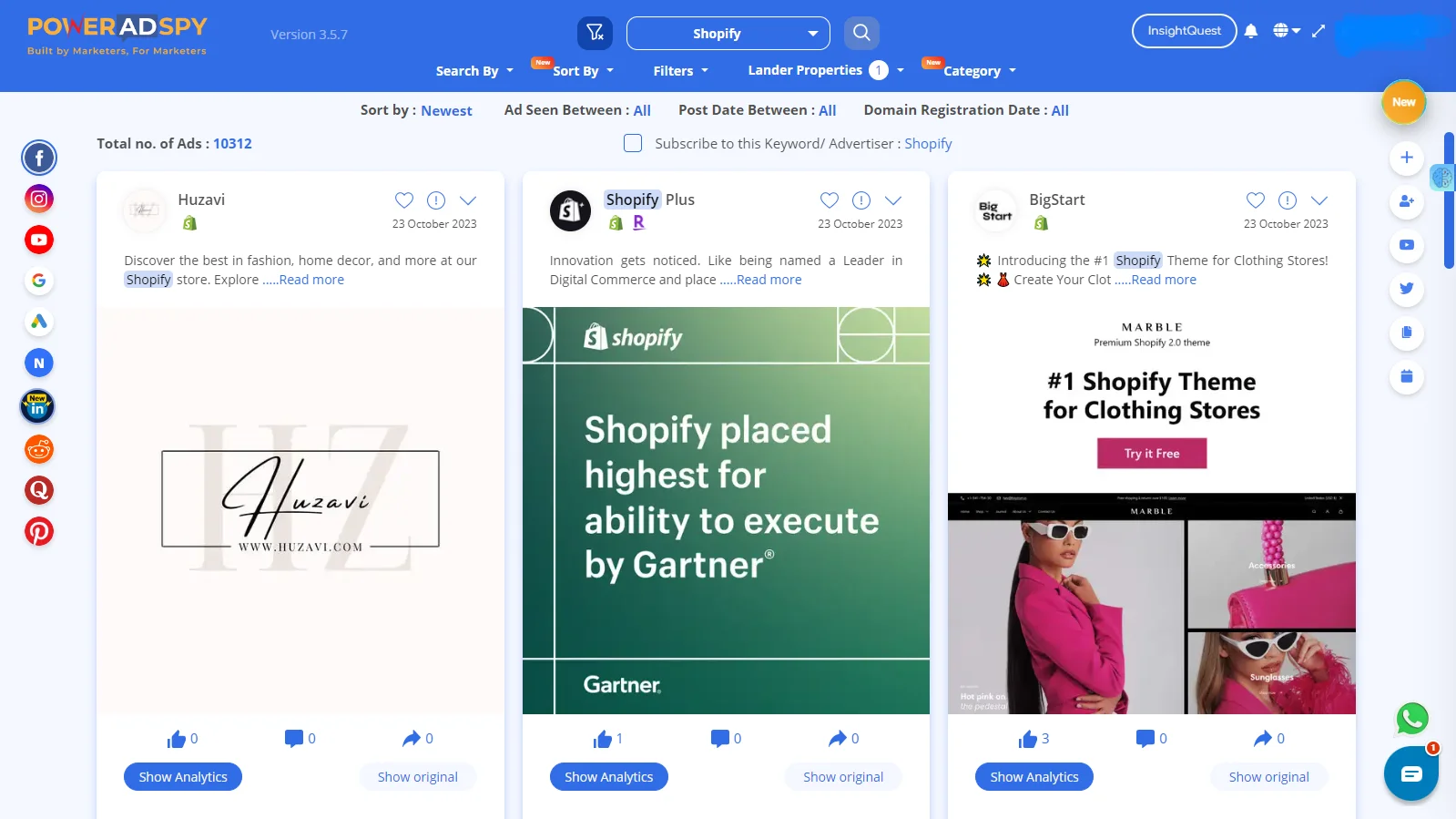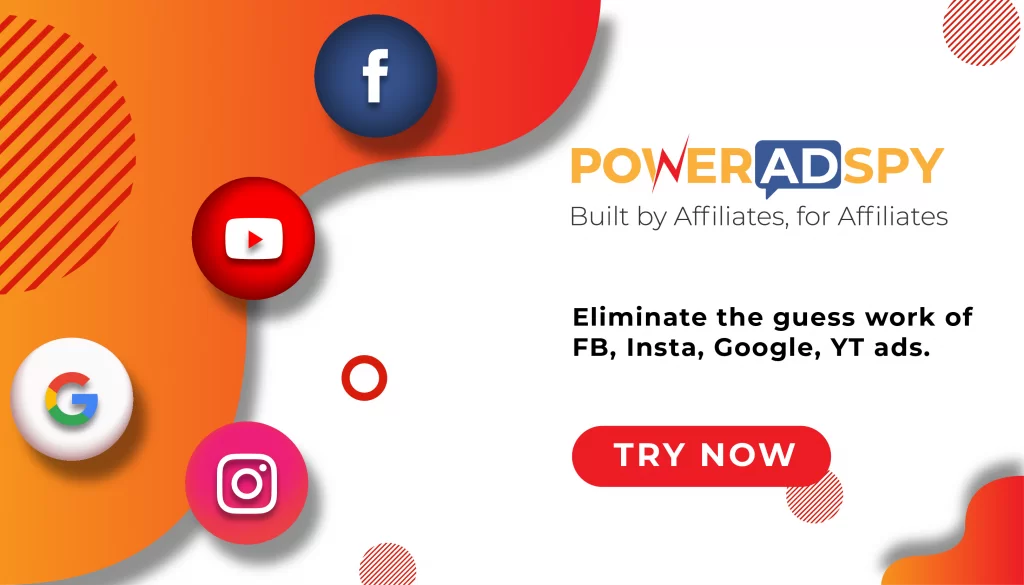Facebook Ads vs Google Ads: Which is Better for Your Small Business?
Online Advertising is all about getting positive and the desired outcome. That’s where the giants of digital advertising, Facebook Ads and Google Ads, step into the picture.
Each promises to be the game-changer, the solution to your advertising dilemmas. However, there’s a catch that you should be aware of. It’s not just about allocating your budget; it’s about putting your hard-earned money where it will yield the best results for your small business.
So, let’s jump into the world of Facebook Ads vs. Google Ads and uncover which one is the ideal match for your small business. We’re here to help you make that crucial decision and set you on the path to advertising success.
By the end, you’ll have a clearer picture of which platform might be better for your small business.
So, Let’s Start!!
Listen to this Podcast Now!!
Facebook Ads vs Google Ads
What is Google Ads?
Google Ads (formerly known as Google AdWords) is a PPC (pay-per-click) advertising platform that enables businesses to pay for the visibility of their advertisements. These advertisements make appearances within Google’s search results on google.com or extend to other websites through Google’s Search Partners or Display Network.
At the core of Google Ads lies the Search Network, a vital avenue for advertisers to present their business ads to users in the midst of actively seeking products or services offered by the business.
What is Facebook Ads?
Much like Google, Facebook Ads are a form of paid advertising, and as the name suggests, they appear on the Facebook platform.
These Facebook Ads can manifest in several locations, including:
- Facebook Newsfeed
- Instagram Newsfeed
- Facebook Marketplace
- Video Feeds
- Right-hand column
- Messenger inbox
Over the years, Facebook has evolved into a fiercely competitive advertising arena. It boasts the highest number of monthly active users among all social media platforms, offering an ideal environment for a diverse range of businesses to promote their products and services.
In Google vs Facebook ads, Google typically targets users actively seeking specific products or services, whereas Facebook Ads take a more passive approach. These ads appear to users who aren’t looking for a specific product or service; instead, they blend seamlessly into a user’s Newsfeed.
This approach opens up new opportunities for businesses to capture the attention of potential customers more casually and engagingly, making Facebook Ads a unique and valuable component of the digital advertising landscape.
Facebook Ads vs Google Ads: Function
Facebook Ads and Google Ads serve distinct functions, and understanding the differences between Facebook Ads vs Google Ads is very important for effective digital marketing.
How Does Google Ads Function?
In the Search Network, selecting the right keywords is crucial for your campaign. You carefully pick keywords that match your product or business. When a user searches using one of these keywords, your ad can appear, and you only pay when they click on it.
For each keyword, you have the option to set a maximum CPC. The maximum CPC indicates to Google how much money you are willing to spend on a click. The main goal of Google advertising is to guide potential customers who are actively searching for your product or service to your website.
How Do Facebook Ads Work?
Facebook Ads operate by providing advertisers with a versatile set of tools for reaching their target audience. Advertisers can specify their audience based on demographics, interests, behaviors, and more, ensuring that their message reaches the right people.
Ad campaigns are created with specific objectives in mind, whether it’s to boost website traffic, increase page likes, or generate leads. These ads are seamlessly integrated into users’ feeds and the broader Facebook network, making them a part of the users’ browsing experience and increasing the chances of engagement.
Facebook Ads vs Google Ads: Benefits
What are the Benefits of Facebook Ads?
The advantages of utilizing Facebook Ads are numerous and can greatly benefit businesses. Some of the key benefits include:
Precise Targeting: Facebook Ads excels in demographic and interest-based targeting, allowing you to reach a specific audience likely to be interested in your products or services.
Engaging Ad Formats: Facebook offers a variety of ad formats, including image ads, video ads, carousel ads, and more. This diversity allows for engaging and visually appealing content.
Extensive Reach: With over 2.8 billion monthly active users, Facebook provides an enormous potential audience for your ads.
What Are The Advantages Of Google Ads?
The Benefits of using Google Ads are substantial and can greatly benefit businesses. Some of the key advantages include:
Intent-Driven: Google Ads reaches users actively searching for specific products or services, making it highly intent-driven. This means you’re more likely to connect with users who are ready to make a purchase.
Variety of Ad Formats: Google Ads offers a range of ad formats, including text ads, display ads, video ads, shopping ads, and app ads. This diversity allows you to choose the format that best suits your business goals.
Measurable Results: Google Ads provides extensive data and analytics, allowing you to measure the success of your campaigns, track conversions, and refine your strategies.
To sum up, Facebook and Google Ads have their pros and cons, and you should decide based on your goals, target audience, and how you want to advertise. Recognizing these benefits is essential for making an informed choice in the Facebook Ads vs Google Ads comparison.
Competitor Research: Gaining the Competitive Edge
Competitor research in the Facebook Ads vs Google Ads landscape can be your secret weapon. Understanding what your competitors are doing in the advertising landscape can provide you with strategic insights that shape your advertising campaigns.
By keeping an eye on your competitors’ strategies and using Google and Facebook ad Spy tool like PowerAdSpy, you can draw inspiration and gain a deeper understanding of what works in the realm of online advertising. This competitive intelligence tool can help you fine-tune your campaigns for better results.
PowerAdSpy: AI-based ads Intelligence Tool
PowerAdSpy is a competitive intelligence tool that can help you gain insights into your competitors’ advertising strategies on social media platforms like Facebook and Google.
Here’s how you can use PowerAdSpy effectively to analyse Facebook Ads vs Google Ads of competitors:
Competitor Research:
Enter the name or URL of a competitor, and PowerAdSpy will provide you with a list of their active ads. This means you can see what your competitors are doing with their ads and get ideas for your campaigns.
Ad Copy Analysis:
Analyze the ad copy used by competitors. Understand the messaging, call-to-action, and value propositions that are working for them. You can then craft your ad copy with this information in mind.
Ad Creative Examination:
View the images and videos used in competitor ads. This can help you identify the types of visuals that resonate with the audience in your niche. It’s a great resource for improving the quality of your ad creatives.
Ad Performance Metrics:
PowerAdSpy provides data on ad performance, including engagement metrics like likes, shares, and comments. This helps you gauge the effectiveness of competitor ads and identify which ones are generating the most interaction.
Demographic Insights:
Figure out what age group your audience is watching your competitor’s ads. This data can inform your targeting strategy and help you reach a similar audience.
Filtering and Sorting:
Use various filters to narrow down your search, such as filtering ads by ad type, location, and more. This allows you to find the most relevant competitor ads.
Save and Organize:
You can save ads that you find interesting or want to refer back to later. This feature helps you create an organized library of ad inspirations.
Explore Trends:
Discover emerging trends and popular ad campaigns in your industry or niche. Identify which strategies are gaining traction and adapt your campaigns accordingly.
Spy on Multiple Platforms:
PowerAdSpy supports multiple platforms, so you can also research competitor ads on platforms like Google, YouTube, and more.
With PowerAdSpy, you can outperform your competition. It lets you see what works in your industry, so you can design your advertising campaigns based on real insights from your competitors in the Facebook Ads vs Google Ads arena.
Read More:
7 Important Google Ads Updates You Need To Know
7 Ways to engage with your Audience
How To Create Best Facebook Ads|9 Best Practices
Facebook Ads vs Google Ads: Examples
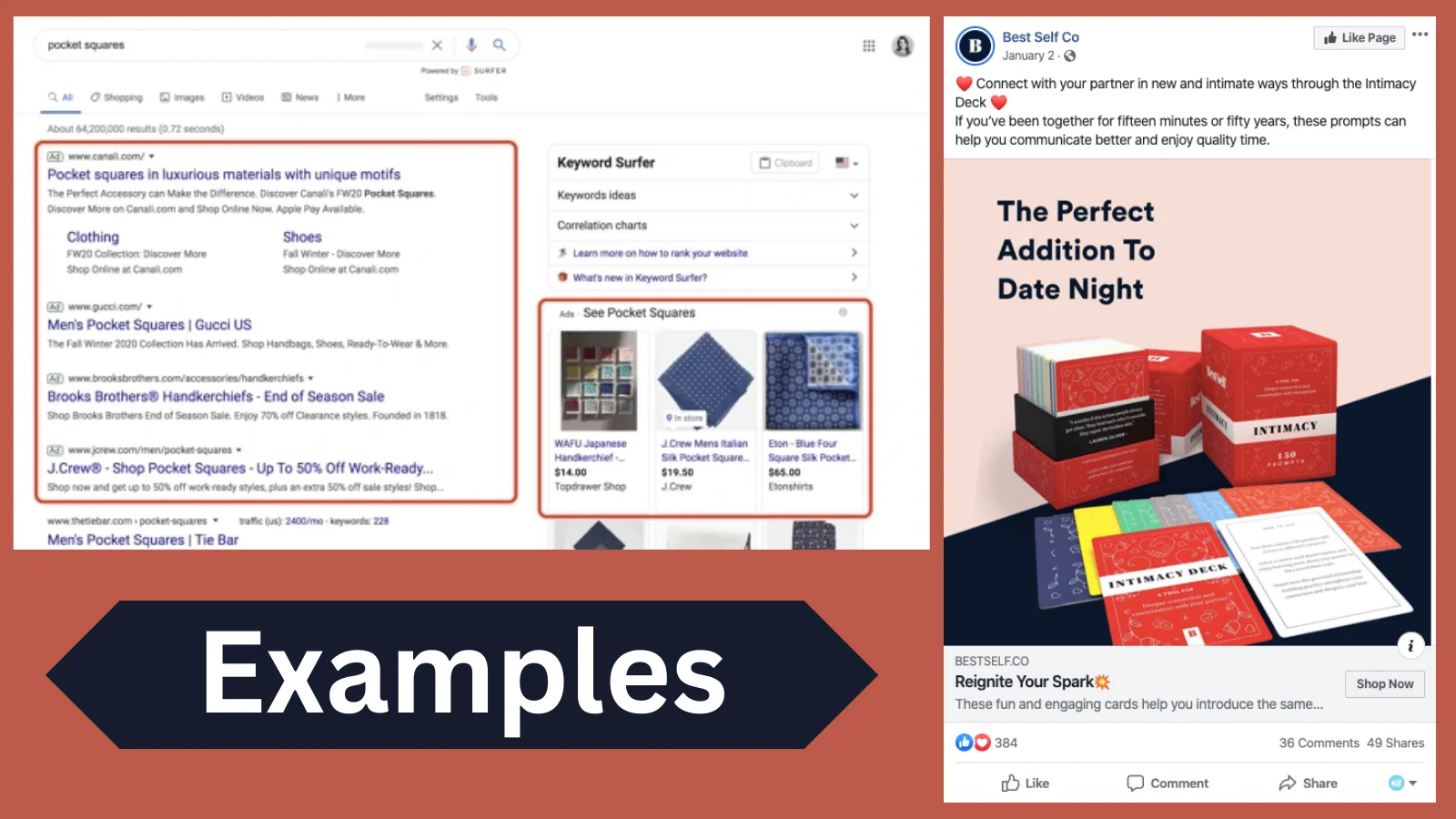
Here are some examples to illustrate Google ads vs Facebook ads, in terms of audience intent, ad formats, reach, cost, ad placement and ad performance:
Three Examples Of Successful Google Ads Campaigns
Coca-Cola’s Campaign: Personalizing their products by printing popular names on bottles and cans led to significant social media engagement and online orders, with Google Ads helping to reach a broad audience.
FreshBite Catering: A local catering company leveraged Google Ads to reach users searching for catering services in their area. With a well-optimized campaign, they experienced a 40% rise in inquiries and bookings.
GymGear Pro: GymGear Pro used Google Ads to showcase its fitness equipment. By targeting specific product keywords, they saw a 25% boost in online sales, establishing themselves as a top choice for fitness enthusiasts.
Three Examples Of Successful Facebook Ads Campaigns
Luxe Watches: Luxe Watches, an online luxury watch retailer, used Facebook Ads to reach users interested in high-end timepieces. Their visually stunning carousel ads showcasing their collection led to a 50% increase in website traffic and a 20% boost in sales.
Shopify: Shopify ran an ad campaign targeting small business owners and entrepreneurs looking to start their online stores. They offered a free trial and emphasized how easy it was to get started. This campaign was effective in attracting new users to their platform.
Green Thumb Landscaping: A local landscaping company utilized Facebook Ads to target homeowners in their service area. By showcasing before-and-after photos of their projects, they generated a 30% increase in service inquiries and new clients.
Google Ads vs Facebook Ads: Contrast
While both Google Ads and Facebook Ads are valuable advertising tools, they serve different purposes and cater to different audiences. Understanding the nuances of Facebook ads vs Google ads is best for crafting effective digital marketing strategies.
Search Intent vs. Interest-Driven:
Google Ads are ideal for capturing users actively searching for products or services. In contrast, Facebook Ads work by targeting users based on what they like and do.
Ad Formats:
Google Ads offer a variety of formats suitable for different business goals, while Facebook Ads provide visually appealing formats tailored for the social media environment.
Measurement:
Google Ads provide detailed performance data, ideal for tracking conversions and optimizing campaigns. Google Ads or Facebook Ads also offer analytics but focus on engagement metrics.
Ultimately, the choice of Google Ads or Facebook ads for your small business depends on your target audience, business goals, and budget. Consider experimenting with both platforms to see which one delivers the best results.
Conclusion
In conclusion, the decision of Google ads vs Facebook ads for your small business should align with your unique goals and target audience. Both platforms offer distinct advantages, and successful marketing may involve a combination of strategies.
By understanding the nuances of each platform, you can make an informed choice that best serves your business objectives.

